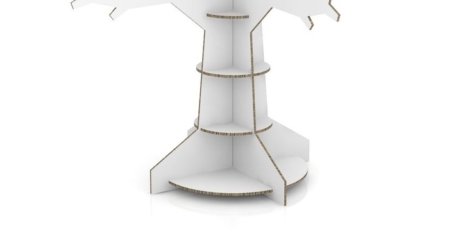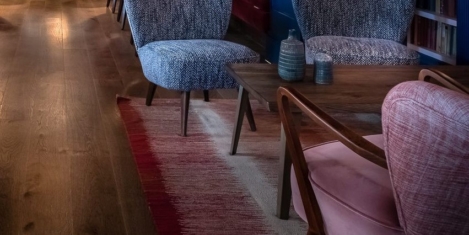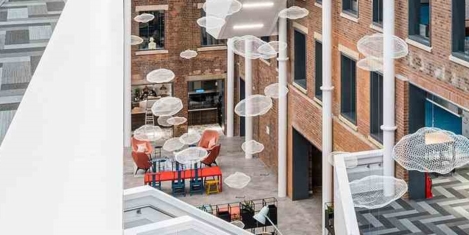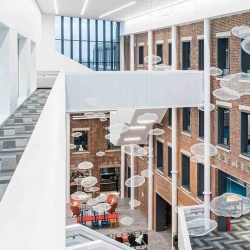To provide the best experiences, we use technologies like cookies to store and/or access device information. Consenting to these technologies will allow us to process data such as browsing behaviour or unique IDs on this site. Not consenting or withdrawing consent, may adversely affect certain features and functions.
The technical storage or access is strictly necessary for the legitimate purpose of enabling the use of a specific service explicitly requested by the subscriber or user, or for the sole purpose of carrying out the transmission of a communication over an electronic communications network.
The technical storage or access is necessary for the legitimate purpose of storing preferences that are not requested by the subscriber or user.
The technical storage or access that is used exclusively for statistical purposes.
The technical storage or access that is used exclusively for anonymous statistical purposes. Without a subpoena, voluntary compliance on the part of your Internet Service Provider, or additional records from a third party, information stored or retrieved for this purpose alone cannot usually be used to identify you.
The technical storage or access is required to create user profiles to send advertising, or to track the user on a website or across several websites for similar marketing purposes.
 Looking back, who could possibly have predicted 2020? It’s been such a difficult pandemic year for so many individuals and companies. Yet it’s also been a transformative time, which has seen dramatic shifts in the way we work. So, with some trepidation, here’s my forecast for the near future. This year will see the office bounce back, but not as we remember it. The office of the future will have an important new role as the physical embodiment of a changing corporate culture. (more…)
Looking back, who could possibly have predicted 2020? It’s been such a difficult pandemic year for so many individuals and companies. Yet it’s also been a transformative time, which has seen dramatic shifts in the way we work. So, with some trepidation, here’s my forecast for the near future. This year will see the office bounce back, but not as we remember it. The office of the future will have an important new role as the physical embodiment of a changing corporate culture. (more…)






 Years of pathologising offices should have prepared us for the patholigisation of virtual spaces. It seems like months since anybody has come out with that tired old rant about open plan. Certain vociferous and obsessive
Years of pathologising offices should have prepared us for the patholigisation of virtual spaces. It seems like months since anybody has come out with that tired old rant about open plan. Certain vociferous and obsessive 
 Originally published in December 2014. Homeworking seems to have become a bit of a hot topic this year, but one sentence published on the
Originally published in December 2014. Homeworking seems to have become a bit of a hot topic this year, but one sentence published on the 
 Now, more than ever, both at home and at work, we need to be surrounded by people we can rely upon and trust as we ride the waves of uncertainty. Over the past year, we have learnt that priorities and targets can be shifted in the blink of an eye which has increased the importance of flexibility, support networks and relying on each other. This is just as relevant in business, including who we choose as strategic partners and how we contract with those partners.
Now, more than ever, both at home and at work, we need to be surrounded by people we can rely upon and trust as we ride the waves of uncertainty. Over the past year, we have learnt that priorities and targets can be shifted in the blink of an eye which has increased the importance of flexibility, support networks and relying on each other. This is just as relevant in business, including who we choose as strategic partners and how we contract with those partners. 
 Someone really should have warned HR and people leaders that we needed to strap ourselves in, right? Even then, would we have ever been completely prepared for the rollercoaster ride organisations have experienced because of the pandemic? As part of Sage’s research, ‘
Someone really should have warned HR and people leaders that we needed to strap ourselves in, right? Even then, would we have ever been completely prepared for the rollercoaster ride organisations have experienced because of the pandemic? As part of Sage’s research, ‘


 The vaccine rollout is well on its way, the Government has set out its road map for easing lockdown and it seems there is light at the end of the tunnel. Organisations can hopefully now start to shift mindsets away from the negativity of the past months and create a positive outlook for the future. So, should leaders and managers now be pasting on the smiles, dishing out the motivational pep talks and inspirational emails? Should they aim to create a sense of positivity at work. No, most definitely not.
The vaccine rollout is well on its way, the Government has set out its road map for easing lockdown and it seems there is light at the end of the tunnel. Organisations can hopefully now start to shift mindsets away from the negativity of the past months and create a positive outlook for the future. So, should leaders and managers now be pasting on the smiles, dishing out the motivational pep talks and inspirational emails? Should they aim to create a sense of positivity at work. No, most definitely not. 
 Of all the opportunities for positive change driven by the pandemic, the most important may be the least talked about. And that’s in spite of the fact that both workers and organisations as well as governments and other bodies around the world are aware and in favour of it and its consequences are most far reaching, affecting us all. It is, of course, the chance to do something significant about climate change and the environment.
Of all the opportunities for positive change driven by the pandemic, the most important may be the least talked about. And that’s in spite of the fact that both workers and organisations as well as governments and other bodies around the world are aware and in favour of it and its consequences are most far reaching, affecting us all. It is, of course, the chance to do something significant about climate change and the environment. 
 The circular economy is the ‘holy grail’. Few people would deny the ambition of keeping resources in use for as long as possible, extracting the maximum value from them, then recovering and regenerating products and materials at the end of each service life. Is this achievable within the furniture and furnishings sector? Many manufacturers and suppliers can justifiably boast impressive ‘green’ credentials, such as manufacturing techniques, the use of innovative and sustainable materials as well as recyclability of products. The production and supply of new furnishings doesn’t address, however, the short and longer term issues relating to sustainability. ‘Cradle to cradle’ is a great concept – but who is responsible?
The circular economy is the ‘holy grail’. Few people would deny the ambition of keeping resources in use for as long as possible, extracting the maximum value from them, then recovering and regenerating products and materials at the end of each service life. Is this achievable within the furniture and furnishings sector? Many manufacturers and suppliers can justifiably boast impressive ‘green’ credentials, such as manufacturing techniques, the use of innovative and sustainable materials as well as recyclability of products. The production and supply of new furnishings doesn’t address, however, the short and longer term issues relating to sustainability. ‘Cradle to cradle’ is a great concept – but who is responsible? 
 One important concept the pandemic has taught us is that irrespective of where we work and whatever form the future workplace takes, our brand must remain strong. With much of our workforce now working from home, how do we bridge the gap between corporate and home life? As head offices re-form into social hangout hubs, and dining tables become makeshift desks, one message is loud and clear – connection with and delight in a brand is everything. From our internal talent and culture, and supply partnerships, to external customer persona, we must strengthen our culture both inside and out.
One important concept the pandemic has taught us is that irrespective of where we work and whatever form the future workplace takes, our brand must remain strong. With much of our workforce now working from home, how do we bridge the gap between corporate and home life? As head offices re-form into social hangout hubs, and dining tables become makeshift desks, one message is loud and clear – connection with and delight in a brand is everything. From our internal talent and culture, and supply partnerships, to external customer persona, we must strengthen our culture both inside and out. 
 We’ve been talking to our clients a lot over the last eighteen months, informing and educating them about when upcoming green legislation might come into force and what that will mean for the construction industry. So, it’s with interest that we saw the UK government unveil its
We’ve been talking to our clients a lot over the last eighteen months, informing and educating them about when upcoming green legislation might come into force and what that will mean for the construction industry. So, it’s with interest that we saw the UK government unveil its 








March 11, 2021
Escaping the gravitational pull of workplace data
by Mark Eltringham • Comment, Technology, Workplace design
(more…)